Dominic Cooper gets CANDID about his character Fleming!
The actor reveals his experience of playing Fleming as a whole.
Published: Monday,Jul 17, 2017 18:11 PM GMT-06:00

What was your initial reaction on being cast as Fleming and why did you want to take the role on?
DC. I was terribly excited by Fleming's life more than anything. I read the script and I was immediately drawn into his world and who he was, and actually how he was a more complex man than I'd ever thought him to be. I always love fighting for the role and auditioning and having to show your take on who this person is. I know that I'm a very different person in terms of looks, so I always questioned whether I'd be their choice? But I thought the best way to approach this was to have an understanding of who that man saw himself as, rather than who he was. I had this terribly chaotic audition process where I had a bunch of friends around who were all hopelessly difficult and all rather drunk, and who were trying to direct me, shouting abuse while I was trying to act. But it was a great script and it was so well written. Sometimes there's just a real ease in portraying someone and you can feel yourself very easily get into their skin and you do things that are quite unexpected. It's a very fun role to play: it's layered and there's an element of darkness about him, which I think very few people knew about.
Can you talk us through the period of time in which Fleming is placed?
DC. It's funny, because I think we have a warped idea of what it was like living through the Second World War, which we enter at the end of episode one. We hear what it was like on the front fighting and we read the letters, but I think in a situation like that, people lived in the moment. I think for many, it was the discovery of themselves. People were really living their lives to the full, so it's a wonderful place to have a story unfolding: carefree but terrified at the same time.
Tell us about the changes that Ian goes through within the series?
DC. It seems as though he had quite a troubled youth, although it had been very privileged: he'd been to Eton and he was asked to leave Sandhurst for bad behaviour. He was ultimately an artist who had a chaotic and inspired mind, but didn't know what direction to go in. His family connections finally managed to get him a job with the secret service and suddenly his vivid imagination came to life and he had a very different take on how to win the war. Here, I think it becomes quite apparent, no one really had a clue.
What are some of the characteristics Fleming shares with Bond?
DC. You can see where Bond has come from and what we have done is created someone slightly darker and nastier than the man who Bond has become now. The only huge difference is that our man is flawed and that he fails.
What sort of research did you do to prepare?
DC. Well, I love doing this for the reason that you are immersed in the wealth of background information about this person. For me, starting from zero or creating a character from nowhere apart from a script is always the challenge because you have to be very self-assured in your decision making. So, with this, you can always refer back to it. I try not to feel the pressure of portraying someone and getting them exactly right, and I know that if someone knew Ian and watched what I'm doing with him, they might just go, "Well, it's nothing like him." So, I've taken what I can, the riches and wealth of this person, and the research, and, I suppose, created someone I think he would have liked to have been seen as.
Mat Whitecross, our director, has been so magnificent in achieving the amount we've had to shoot in such a short space of time, and when performance was important or when there was a very delicate scene, he never ever let that moment be rushed, he always nailed it, which is wonderful. But it's not until you're in the situation, on the day, in the environment, that things really come to life and you truly understand them and you just have to jump in. It was terrifying, to be honest, but it's been good fun.
What's the relationship like between Ian and Ann?
DC. They have an extraordinarily volatile relationship throughout. Their relationship is dangerous and intensely physical. I think she adored him, but they'd never admit it. Their defences were always up with one another, it was like a little battle and we get that really well here, in that each scene they're determined not to lose to the other one. They won't give anything away and it's very energetic and sexual and fiery. I've had great fun with Lara Pulver playing out all those scenes. There needs to be a very specific energy between the two of them.
Where does Muriel feature in Fleming's life?
DC. Muriel is this fantastic, sexy courier in her leathers that he would, I suppose, usually find and pick up and treat appallingly for a couple of nights, but she wakes up in his bed and they start a relationship. You can see him dismiss her as a sort of bubbly thing, but actually, I think he's rather taken by her lightness and her joy and her ease and I think that's kind of perfect for him.
Godfrey bears a striking resemblance to the same character in the Bond films...
DC. M...yeah. It's wonderfully played by Sam West. I always considered him to be much older when I read the scripts and actually he brings this lovely sort of youthful energy to it - a very delicate, sweet man, who's supposed to be in charge of Ian, but actually...
What was it like working with Lesley Manville, who played your mother?
DC. I know people who have a relationship with their mother which is just agony and seething and it's kind of painful to be around because they feel so under the microscope and like absolute failures, and I think that's how he constantly felt. Lesley's just so wonderful at playing that sort of woman, who just wouldn't listen to him, had no real respect for him and didn't really know what on earth to do with him. Loved him to bits really, but...
And Anna Chancellor?
DC. We didn't stop giggling throughout and we had a relationship which I think was written to be quite sexual, again. Just how we were together, there was something much more intriguing and fun that was playing, that wasn't just his seductive side.
Is there a particular style or look to the series?
DC. The choice was just to make it look beautiful. It's a wonderful era: you've got smoky late-night jazz clubs and beautiful Victorian houses in London, so there's a very distinctive look, and we've chosen an era that you can have a lot of fun with - the cars are stunning, the clothes are beautiful. There's a certain elegance to it that certainly doesn't exist now.
And finally, why is Ian's story worth telling?
DC. Anyone's life can be compelling if portrayed in the right way, but this man had a story unlike anyone else really: from where he came from and the failure he thought he was to the war, discovering his genius and then writing the books that became the films which are the biggest franchise we've ever known. Even if you're not a Bond fan, it's certainly compelling. You see all those references and where the inspiration comes from, but actually, just as a love story it's quite beautiful, touching and very sad. A story about war and loss, and a man who was a genuine failure in many ways, who had a dark side but at the same time was a very special artist who made a big impact.
Keep reading this space for more updates.
Join Our WhatsApp Channel
Stay updated with the latest news, gossip, and hot discussions. Be a part of our WhatsApp family now!
Join NowYour reaction
 Nice
Nice Great
Great Loved
Loved LOL
LOL OMG
OMG Cry
Cry Fail
Fail

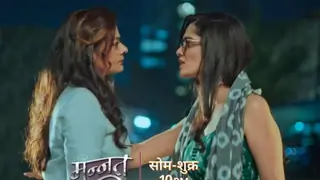

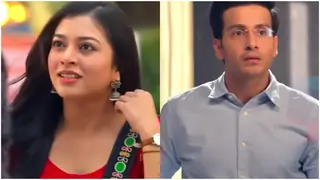
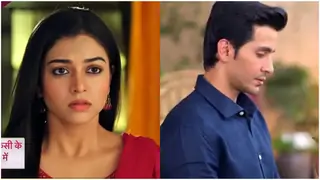
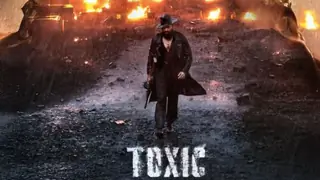
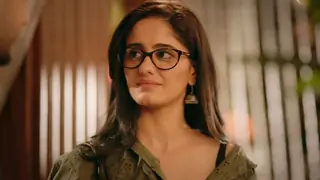
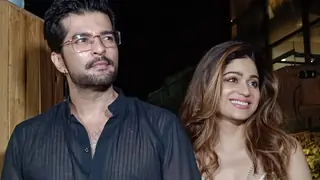

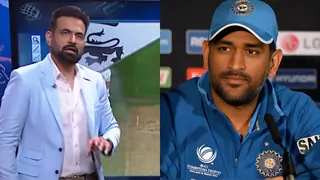






Post a comment